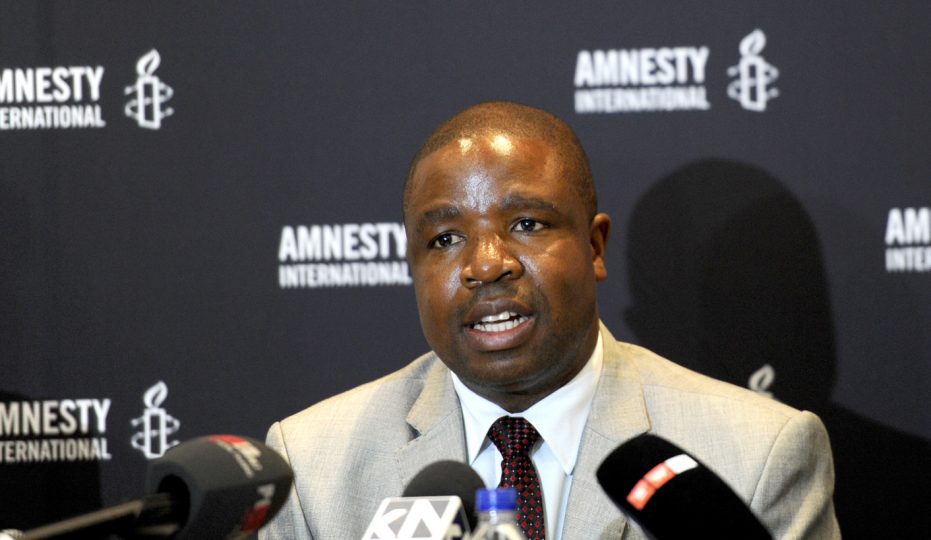Source: Govt’s austerity measures hurting the poor: Muchena – The Zimbabwe Independent April 5, 2019
Deprose Muchena, Amnesty International’s director for the Southern Africa region speaks at a news conference held by the organisation in Johannesburg to highlight human rights abuse, Wednesday, 25 February 2015. Picture: Werner Beukes/SAPA
Nyasha Chingono
Human rights watchdog Amnesty International says austerity measures being pursued by government to address economic challenges should target top earners if the developmental model is to transform Zimbabwe to a middle-income economy by 2030.
The organisation’s regional director, Deprose Muchena, told a debt symposium recently that the poor had fallen victim to the crippling austerity measures introduced by
President Emmerson Mnangagwa’s government after the 2018 harmonised elections.
He said austerity targeted at the low-income earners would be a futile exercise, adding that government had failed to respect human rights issues when it decided to impose 2%
on electronic transactions.“I can tell you today that austerity, which is not targeted at those responsible for primitive accumulation, does not lead to prosperity for the underclass that are victims of this developmental model. Rethinking our development model is the starting point. Rethink our Washington Consensus economic model, the role of the state and society,” Muchena said.
Zimbabwe Coalition on Debt and Development (Zimcodd) executive director Janet Zhou weighed in, saying austerity measures were a burden to those with limited incomes.
“Worse still, government cut social spending, further worsening social conditions of the poor. The main victims of the debt crisis in Zimbabwe are the least responsible for the loan contraction process and resolving the debt.
“The austerity measures associated with debt repayment and re-engagement processes undermine the capacity of government to deliver social services. Women, who usually care for the young, sick and elderly in a household, take on the burden of the extra care work.”
In his maiden budget, Finance minister Mthuli Ncube announced a number of measures largely seen as symbolic gestures on the part of those in government meant to placate the general public. However, the common man has borne the burden of elite profligacy.
One of those measures is the 5% wage cut for senior civil servants, from director level right up to the President himself. The bulk of remuneration at that level, however, is not in the form of wages, but allowances, particularly travel and subsistence allowances. These remain ostensibly high while government spending has continued unabated as witnessed by a cumulative debt standing at a staggering US$18 billion.
Government’s unbridled expenditure on foreign travel, notably on chartered luxury planes, has derailed the austerity gospel as the common man continues to suffer.
Zimbabwe’s debt, three times the gross domestic product (GDP), has over the years crippled the country’s ability to clear arrears. The country’s debt-to-GDP ratio has been unsustainable over the years.The debt-to-GDP ratio is the quantitative relation of a country’s public debt to its GDP and compared what a country owes with what it produces; the debt-to-GDP ratio indicates its ability to pay back its debts.
During last year’s International Monetary Fund and World Bank spring meetings in Bali, Indonesia, government agreed to prioritise the US$2,4 billion owed to the creditors of choice, US$680 million to the African Development Bank, US$1,4 billion to the World Bank group and US$308 to the European Investment Bank.

COMMENTS
What austerity measures??????
Austerity measures to the low income earners! Thats the Mafia operates.